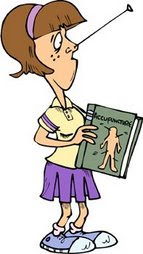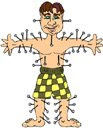More often than not, patients must cobble together a variety of treatments, and increasingly those include some type of complementary and alternative medicine (CAM) remedy such as yoga or acupuncture. One recent study found that 44 percent of chronic pain patients on narcotics (opioids) had used a CAM remedy in the previous year. They may seek these out because conventional treatments have failed, or because they mistakenly believe that CAM therapies have no side effects.
Because of such misconceptions, the National Center for Complementary and Alternative Medicine (NCCAM) urges patients not to replace scientifically proven treatments with unproven CAM therapies. It’s also important to discuss with your healthcare provider any CAM treatments you’re considering; that’s especially key if you’re planning to take any supplements, as many can interact with prescription or even nonprescription drugs.
That said, the evidence showing that some CAM therapies are beneficial continues to mount. “There’s a strong mind/body component to managing chronic pain that some CAM treatments address—which drugs don’t,” says Russell Portenoy, MD, chair of the department of pain medicine and palliative care at Beth Israel Medical Center in new York City. “It’s about learning how to use all of your resources to function better.” Here’s a quick guide to some of the CAM therapies that may be worth pursuing.
1. Acupuncture. A popular option (nearly 60 percent of chronic pain patients try it), this traditional Chinese medicine method entails the insertion of fine needles into the skin at specific sites to disperse negative qi, or energy. In recent studies, patients with lower-back pain felt better after undergoing an average of 10 treatment sessions.
2. Massage. Since tense muscles often contribute to pain, it’s no wonder that massage, which works to relax the muscles, can also be effective at easing lowerback pain. According to a 2001 study published in the Archives of Internal Medicine, patients who had 10 massages (one per week) reported better pain relief than those who had acupuncture or followed pain-relieving techniques described in books or videos.
3. Spinal manipulation.The jury is still out on the efficacy of this technique, in which a chiropractor, physical therapist or osteopathic physician applies controlled force to a joint of the spine, but there’s some indication that it may minimize lower-back pain and chronic headaches. NCCAM is currently funding research to determine how often and how many treatments work best.
4. Yoga. It’s one of the most popular CAM therapies, and for good reason. One large study found that taking yoga classes twice a week for 24 weeks helped relieve lower-back pain. Other studies have indicated that it may help relieve arthritis symptoms.
5. Tai chi. A study published in The New England Journal of Medicine found that fibromyalgia patients who participated in this Chinese martial art for 60 minutes twice a week for 12 weeks fared better than those who spent that time on general wellness education and stretching.6. Acetyl-L-carnitine. This dietary supplement appears to be promtreating diabetes-related nerve pain. A review article published in The Annals of Pharmacotherapy found that patients who took at least 2 grams daily fared best.
By Rita Rubin, Woman's Day
Mon, Mar 21, 2011
Sponsored Links
Back Pain Specialists-LSI Gentle Endoscopic Laser Surgery-Free Medical Review-866-352-9325LaserSpineInstitute.com/Official
arthritis pain Relief in Just 5 Days. Gauranteed!www.naturaljoint.com
Spinal Stenosis Treatment Advanced Outpatient Surgery. Fast Recovery. No Hospitalization.www.Bonati.com













